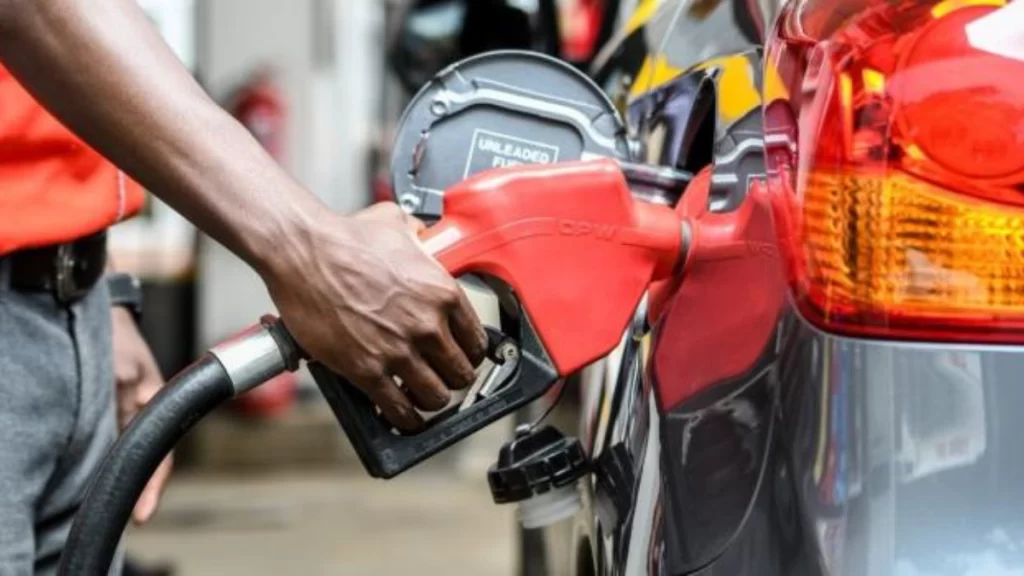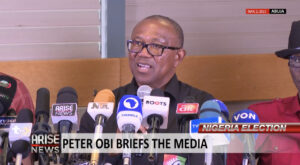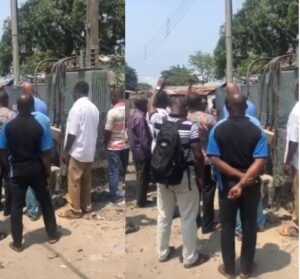By Christopher Okpoko
The Minister of Finance, Budget, and National Planning, Mrs. Zainab Ahmed, recently revealed that the Nigerian government has decided to postpone the removal of fuel subsidies earlier scheduled for end of April, 2023 one month before the handover to the new administration, because of the need for further preparations and consultations with key stakeholders, including the incoming administration.
Without any doubt, this is a good decision which should be welcomed by well-meaning Nigerians even though the Petroleum Industry Act provides for total deregulation of the downstream sector, which implies the removal of subsidy and enthronement of a free market regime for the sector.
Critics posit that fuel subsidy regime is largely responsible for some of the expenditure challenges by successive administrations in Nigeria because, the cost of fuel subsidy over the years has continued to grow in geometric progression partly due to the rising cost of importing fuel which meant that the government had to spend even more to keep domestic prices low and also due to Nigeria’s increasing population which resulted in increased fuel consumption.
Other justifications for the removal of fuel subsidy includes:
- It is estimated that about
N10 trillion was spent in fuel subsidy payments during the period 2006-2018; - A report by the Nigerian National Petroleum Company released in October 2022 revealed that the agency recorded zero revenue from oil export due to the subsidy payment;
- Petrol subsidy alone for October 2022 gulped N199 billion and
N4.39 trillion naira ($9.7 billion) for the full year. While in the 2023 budget, the federal government allocated ₦3.6 trillion to pay for fuel subsidies for the first half of the year; and - Many studies focused on examining the implications of fuel subsidy for the Nigerian economy have shown that subsidy regime distorts fiscal planning, encourages inefficient consumption, and increases inequality as richer households benefit more.
On the other hand, Nigeria is a country that is blessed with abundant mineral resources especially in terms of Crude Oil, the country has abundant crude oil deposit and is ranked the 14th largest producer of crude oil and the 11th largest in proven reserves (OPEC 2022) and is equally ranked the world’s 9th largest in proven natural Gas Reserves. However, this ranking in both crude oil and natural gas has not translated into fuel independency and its by-products.The country is largely a net importer of fuel and other petroleum products such Petrol (PMS) Kerosene (HHK), Diesel (AGO) and Aviation Kerosene (ATK), The huge demand for these products and inadequate supply has led to successive Governments in Nigeria attempting to subsidize the product for the benefit of its Citizenry.
Also, an examination of fuel pump prices in Nigeria shows that since 1978 when oil price was N0.5k per litre under General Obasanjo as Head of State, there has been a gradual increase in petroleum products price. Currently, under President Mohammadu Buhari’s regime, the official pump price of petrol is N185 per litre, but the commodity is sold for between N186 and N300. According to the National President of the Independent Petroleum Marketers Association of Nigeria (IPMAN), Mr. Chinedu Okoronkwo, after the removal of fuel subsidy, it could cost up to N750 per litre.
In addition, Nigeria currently runs two forms of subsidy. The first is the payment of the difference between the actual pump price of petrol, which is arrived at after calculating the landing cost and the extant margins. The other is the cost of transportation (about N30) paid on every litre to ensure that the price of petrol is uniform across the country. It is worthy to note that if the four refineries in Nigeria located in Port Harcourt, Warri and Kaduna were in operation and at full capacity, the huge resources spent on fuel subsidy would have been curtailed drastically.
There is no gain saying that the removal of fuel subsidy may have a toxic effect on the entire nation, especially the poor and vulnerable masses if not properly managed. Highlights of the 2022 Multidimensional Poverty Index survey revealed that: 63 percent of persons living within Nigeria (133 million people) are multidimensionally poor. Removal of fuel subsidy will worsen inflation and ultimately spiral into every sector of the economy. Transportation costs will increase, consequently, the cost of goods and services may rise steeply too. In fact, it may reduce economic welfare, hurt economic growth, reduce household income and make firms less competitive
Nevertheless, fuel subsidy removal has become an economic necessity, but it should be removed at the appropriate time when adequate safety net would have been provided. To buttress this points, we observe that:
- The incoming administration will be inaugurated in less than a month from now. It needs time to settle down for the business of the state. Thus, we should learn a lesson from the ill-timed cashless policy implementation and the resultant chaos that it generated.
- According to the Petroleum Industry Act (PIA) 2021, “Companies with active refining licences or proven track record of international crude oil and petroleum products trading will be allowed to import any product shortfall that domestic refineries are unable to meet”. This implies that our domestic refineries should be in production before the full implementation of the PIA
- Finally, adequate safety net which can provide a safeguard against possible hardship or adversity by the poor masses must be in place before removal of the fuel subsidy. Examples of commonly used safety nets include conditional cash transfers, child allowances, or non-contributory pension programs; food- based programs such as food stamps, food rations, or school feeding programs; food-for-work or labor-intensive public works; assistance to access basic services (such as school fee). For this purpose, the $800 million World Bank loan has been secured as the first tranche of palliatives to be disbursed through cash transfers to about 50 million Nigerians, who belong to the most vulnerable category in the society. However, the questions are:
- What happens to the remaining 83 million persons under poverty?
- How will the 50 million persons for the cash transfers be selected?
- How many more tranches of $800 million palliative is earmarked for this purpose?
- If each of the 50 million persons receive $16 or about N12,000, will it provide the expected relief?
In addition, Provision of train services and or mass transit buses will go a long way to alleviate the hardship that may be associated with the fuel subsidy removal. But recall that between 2010 and 2014, the Federal Government initiated the mass transit scheme to alleviate the transport challenges of the masses, but it was not efficiently managed.
In conclusion, the incoming government will need enough time to provide the necessary safety nets before it can end the fuel subsidy regime to avoid the usual problem of poor implementation of a good policy and unplanned economic turbulence.










More Stories
HEDA sues FG, oil majors over alleged Illegal oil licence transfer
NNPC announces shutdown of Port Harcourt refinery
FG says Emefiele’s 753 seized duplexes will be sold to Nigerians